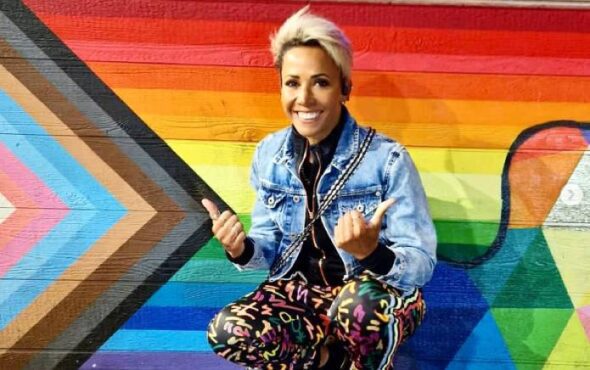
Kelly Holmes has spoken about the struggle of dating in the closet, both throughout her military career and as a high-profile Olympian.
The 52-year-old athlete opened up on Loose Women, explaining how she would convince herself a potential partner wasn’t right for her, because she feared they would want to be public with the relationship.
She shared: “I would circumstantially meet people through friends and convince myself they’re right as I didn’t want to be lonely.
“And then I would think: ‘Nah, no way. I would think if I got too attached they would want us to go public.’
The medal winner came out as a lesbian in June this year, and has spoken since about how she feels “free” since coming out, and “embracing the gay”.
She shared on Instagram: “This journey has been the hardest part of life. Living with any kind of fear is debilitating. You and [sic] here everyday but not fully living every day.
“I have lived in fear for 34 years and I am exhausted and don’t want to anymore. I hope those that read my story will help me through this next scary phase but also be there for others.”
She now has a long term partner, but prefers to keep her relationship out of the spotlight.
View this post on Instagram
She has made a documentary with ITV, titled ‘Kelly Holmes: Being Me’, exploring her experiences as a closeted gay woman.
Before her Olympic career, Kelly was in the military. During the documentary’s making, she spoke to a number of LGBTQ+ servicepeople, and said she was “gobsmacked” about how attitudes in the institution have changed since she left to pursue athletics full-time.
Pre-2000, LGBTQ+ people serving in British Military were not allowed to be open about their sexuality or transgender identity.
They would be discharged and subject to court martial if discovered.
She described the fear she had about her sexuality being found out in an interview with the Sunday Mirror, especially with Royal Military Police raiding barracks.
“They pulled everything out of your cupboard, turned out the beds and drawers, read letters – everything – trying to catch us out,” she said.
Kelly continued: “It’s humiliating, it’s degrading – it feels disrespectful when you’re serving your country and you’re doing a good job. You feel violated, treated like you’re some massive villain.”
During her Olympic career, she struggled with her mental health, and still didn’t feel able to come out.
“I’d think, ‘No one talks about it in the sport, how do I suddenly say I’m gay? I can’t because I’m admitting that I broke the law in the Army’,” she stated.
She has since taken part in a campaign encouraging LGBTQ+ military veterans to give evidence in a Parliamentary review of homophobia in the armed forces prior to 2000.



